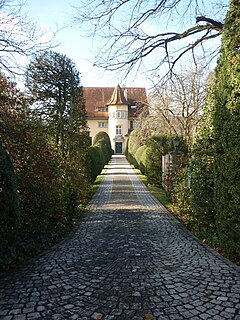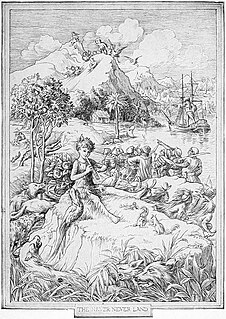 W
WAnalytical psychology is a term coined by Carl Jung, a Swiss psychiatrist, to describe research into his new "empirical science" of the psyche. It was designed to distinguish it from Freud's psychoanalytic theories as their seven year collaboration on psychoanalysis was drawing to an end between 1912 and 1913. The evolution of his science is contained in his monumental opus, the Collected Works, written over sixty years of his lifetime.
 W
WThe Collected Works of C. G. Jung is a book series containing the first collected edition, in English translation, of the major writings of Swiss psychiatrist Carl Gustav Jung.
 W
WThe Society of Analytical Psychology, known also as the SAP, incorporated in London, England, in 1945 is the oldest training organisation for Jungian analysts in the United Kingdom. Its first Honorary President in 1946 was Carl Jung. The Society was established to professionalise and develop Analytical psychology in the UK by providing training to candidates, offering psychotherapy to the public through the C.G. Jung Clinic and conducting research. By the mid 1970s the Society had established a child-focused service and training. The SAP is a member society of the International Association for Analytical Psychology and is regulated by the British Psychoanalytic Council.
 W
WJungian archetypes are defined as universal, archaic symbols and images that derive from the collective unconscious, as proposed by Carl Jung. They are the psychic counterpart of instinct. It is described as a kind of innate unspecific knowledge, derived from the sum total of human history, which prefigures and directs conscious behavior.
 W
WThe Collected Works of C. G. Jung is a book series containing the first collected edition, in English translation, of the major writings of Swiss psychiatrist Carl Gustav Jung.
 W
WThe Black Books are a collection of seven private journals recorded by Carl Gustav Jung principally between 1913 and 1932. They have been referred to as the "Black Books" due to the colour of the final five journal covers.
 W
WThe C. G. Jung House Museum is a historic house museum. It was the residence of the Swiss psychiatrist, psychologist, and essayist Carl Jung as well as his wife, psychologist Emma Jung-Rauschenbach. It is located at Seestrasse 228, Küsnacht, Switzerland, next to Lake Zürich.
 W
WThe Collected Works of C. G. Jung is a book series containing the first collected edition, in English translation, of the major writings of Swiss psychiatrist Carl Gustav Jung.
 W
WThe Collected Works of C. G. Jung is a book series containing the first collected edition, in English translation, of the major writings of Swiss psychiatrist Carl Gustav Jung.
 W
WCollective unconscious refers to structures of the unconscious mind which are shared among beings of the same species. It is a term coined by Carl Jung. According to Jung, the human collective unconscious is populated by instincts, as well as by archetypes: universal symbols such as The Great Mother, the Wise Old Man, the Shadow, the Tower, Water, and the Tree of Life. Jung considered the collective unconscious to underpin and surround the unconscious mind, distinguishing it from the personal unconscious of Freudian psychoanalysis. He argued that the collective unconscious had profound influence on the lives of individuals, who lived out its symbols and clothed them in meaning through their experiences. The psychotherapeutic practice of analytical psychology revolves around examining the patient's relationship to the collective unconscious.
 W
WThe Collected Works of C. G. Jung is a book series containing the first collected edition, in English translation, of the major writings of Swiss psychiatrist Carl Gustav Jung.
 W
WDream interpretation is the process of assigning meaning to dreams. Although associated with some forms of psychotherapy, there is no reliable evidence that understanding or interpreting dreams has a positive impact on one's mental health.
 W
WIn Neo-Freudian psychology, the Electra complex, as proposed by Carl Jung in his Theory of Psychoanalysis, is a girl's psychosexual competition with her mother for possession of her father. In the course of her psychosexual development, the complex is the girl's phallic stage; a boy's analogous experience is the Oedipus complex. The Electra complex occurs in the third—phallic stage —of five psychosexual development stages: (i) the Oral, (ii) the Anal, (iii) the Phallic, (iv) the Latent, and (v) the Genital—in which the source of libido pleasure is in a different erogenous zone of the infant's body.
 W
WThe Collected Works of C. G. Jung is a book series containing the first collected edition, in English translation, of the major writings of Swiss psychiatrist Carl Gustav Jung.
 W
WThe Collected Works of C. G. Jung is a book series containing the first collected edition, in English translation, of the major writings of Swiss psychiatrist Carl Gustav Jung.
 W
WThe C. G. Jung Institute, Zürich was founded in Küsnacht, Switzerland, in 1948 by the psychiatrist Carl Gustav Jung, the founder of Analytical psychology. Marie-Louise von Franz and Jolande Jacobi were also active in the foundation and early work of the institute.
 W
WThe Psychology Club Zürich is an association founded in Küsnacht, Switzerland, in 1916 by the Swiss psychiatrist and psychologist Carl Jung with former patients and students in order to promote and develop analytical psychology.
 W
WThe Collected Works of C. G. Jung is a book series containing the first collected edition, in English translation, of the major writings of Swiss psychiatrist Carl Gustav Jung.
 W
WIn analytical psychology, the personal unconscious is Carl Jung's term for the Freudian unconscious, as contrasted with the Jungian concept of the collective unconscious. Often referred to by him as "No man’s land," the personal unconscious is located at the fringe of consciousness, between two worlds: "the exterior or spatial world and the interior or psychic objective world". As Charles Baudouin states, "That the unconscious extends so far beyond consciousness is simply the counterpart of the fact that the exterior world extends so far beyond our visual field".
 W
WPeter Pan syndrome describes one's inability to believe that they are of an older age or to engage in behaviour usually associated with adulthood. This syndrome affects people who do not want or feel unable to grow up, people with the body of an adult but the mind of a child. They do not know how to or do not want to stop being children. The term comes from the fictional children's character Peter Pan, who never ages. While it is more commonly attributed to men, it can affect women as well.
 W
WThe Collected Works of C. G. Jung is a book series containing the first collected edition, in English translation, of the major writings of Swiss psychiatrist Carl Gustav Jung.
 W
WThe Collected Works of C. G. Jung is a book series containing the first collected edition, in English translation, of the major writings of Swiss psychiatrist Carl Gustav Jung.
 W
WThe Collected Works of C. G. Jung is a book series containing the first collected edition, in English translation, of the major writings of Swiss psychiatrist Carl Gustav Jung.
 W
WThe Collected Works of C. G. Jung is a book series containing the first collected edition, in English translation, of the major writings of Swiss psychiatrist Carl Gustav Jung.
 W
WThe Self in Jungian psychology is a dynamic concept which has undergone numerous modifications since it was first conceptualised as one of the Jungian archetypes.
 W
WIn Jungian psychology, the shadow is either an unconscious aspect of the personality that the conscious ego does not identify in itself; or the entirety of the unconscious, i.e., everything of which a person is not fully conscious. In short, the shadow is the unknown side.
 W
WThe Collected Works of C. G. Jung is a book series containing the first collected edition, in English translation, of the major writings of Swiss psychiatrist Carl Gustav Jung.
 W
WThe Collected Works of C. G. Jung is a book series containing the first collected edition, in English translation, of the major writings of Swiss psychiatrist Carl Gustav Jung.
 W
WThe Collected Works of C. G. Jung is a book series containing the first collected edition, in English translation, of the major writings of Swiss psychiatrist Carl Gustav Jung.
 W
WThe Collected Works of C. G. Jung is a book series containing the first collected edition, in English translation, of the major writings of Swiss psychiatrist Carl Gustav Jung.
 W
WSynchronicity is a concept, first introduced by analytical psychologist Carl Jung, which holds that events are "meaningful coincidences" if they occur with no causal relationship yet seem to be meaningfully related.
 W
WSynchronicity: An Acausal Connecting Principle, by C.G. Jung, is a book published by Princeton University Press in 1960. It was extracted from Structure & Dynamics of the Psyche, which is volume 8 in The Collected Works of C. G. Jung. The book was also published in 1985 by Routledge.
 W
WTheorizing About Myth is a 1999 book by the University of Aberdeen religious studies scholar Robert A. Segal that offers an alternative interpretation of the Adonis myth. In chapter seven, "Adonis: A Greek Eternal Child", he puts forth his theory of Adonis, not as a vegetation god but as an archetype of the eternal child, the Jungian puer.
 W
WTwo Essays on Analytical Psychology is volume 7 of The Collected Works of C. G. Jung, presenting the core of Carl Jung's views about psychology. Known as one of the best introductions to Jung's work, the volumes includes the essays "The Relations between the Ego and the Unconscious" and "On the Psychology of the Unconscious."
 W
WThe wise old man is an archetype as described by Carl Jung, as well as a classic literary figure, and may be seen as a stock character. The wise old man can be a profound philosopher distinguished for wisdom and sound judgment.
 W
WIn Jungian psychology, the Wise Old Woman and the Wise Old Man are archetypes of the collective unconscious.
 W
WPolly Young-Eisendrath is an American psychologist, author, teacher, speaker, Jungian analyst, Zen Buddhist, and the founder of Enlightening Conversations: Buddhism and Psychoanalysis Meeting in Person.